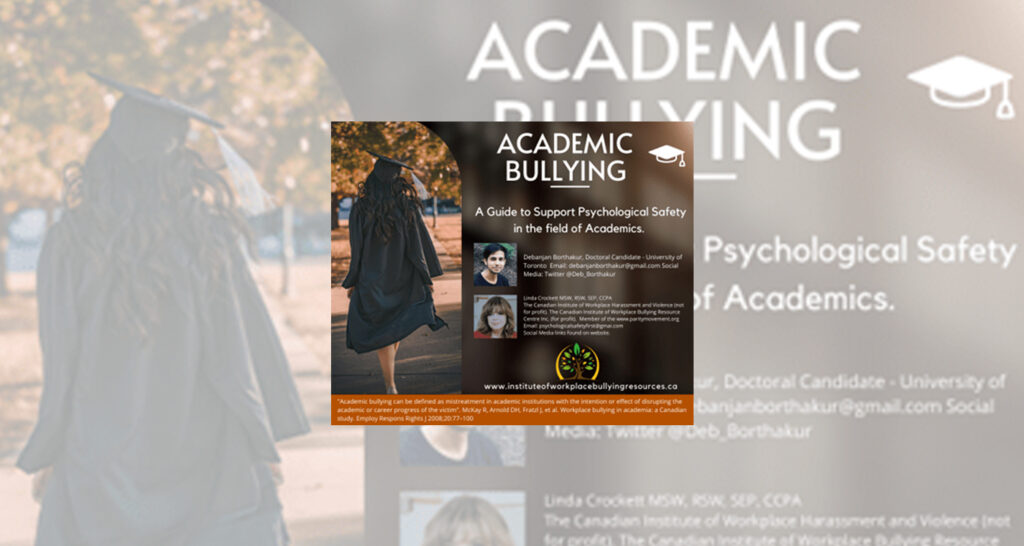Abuse and harassment in academic settings, or ‘Academic Bullying’, is an issue of critical importance both in terms of its prevalence as well as in the efforts increasingly required to identify, address, and mitigate its effects. A wide range of researchers in a variety of academic positions (e.g., PhD students, postdoctoral researchers, and junior faculties) are subjected to this abuse. The main factors working behind this abuse include the existence of immense power gaps between individuals in the system, along with the existence of longstanding hierarchical systems within universities. For example, these systems give a great deal of power to their professors.

When toxic professors take advantage of this power, they will use a variety of covert or overt tactics to make PhD or MA graduate students feel vulnerable during their programs. Unfortunately, out of fear and confusion, most students silently endure this abuse of power under their supervisor. Fact is, when someone speaks up, the university system often produces the kind of stories we hear in toxic workplaces. The system most often tends to protect the respondents (bully or harasser).
